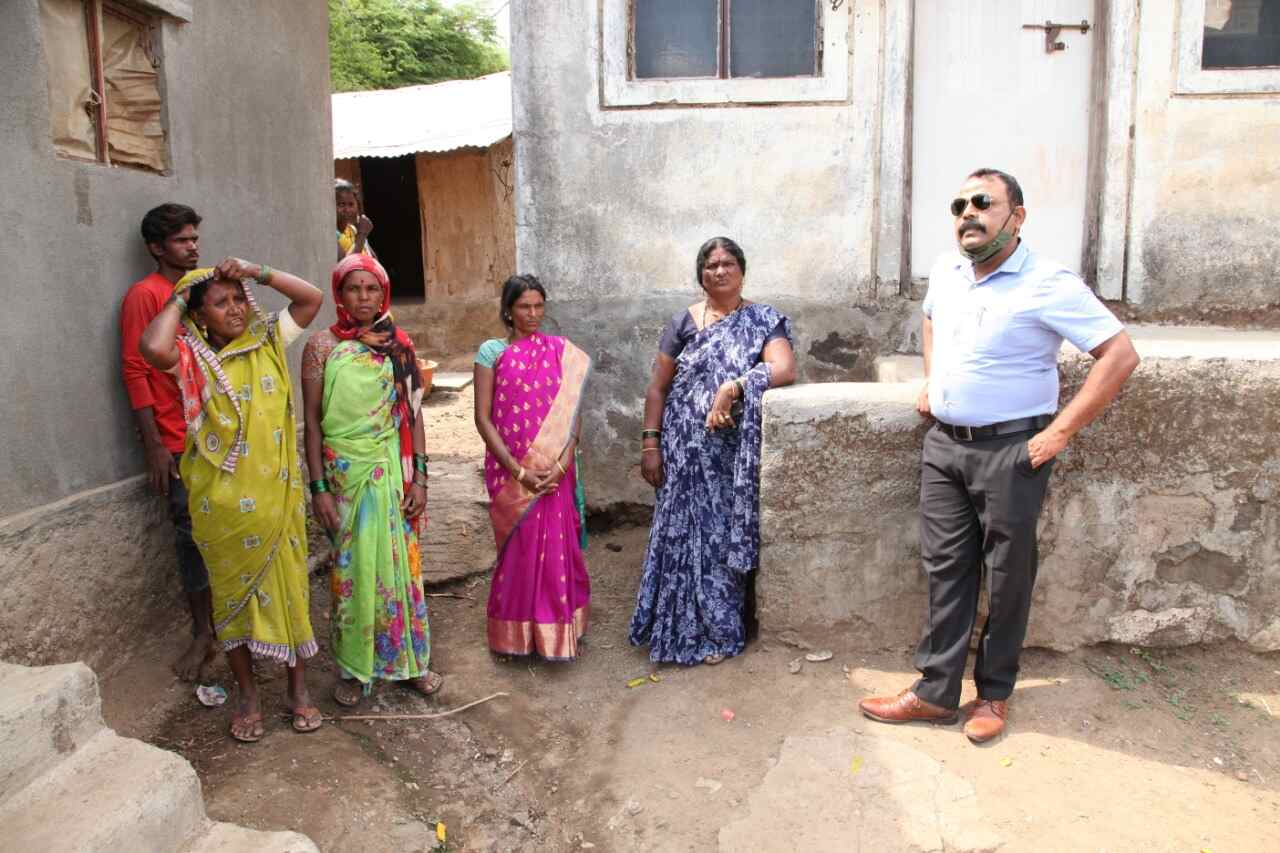The pandemic, the aftermath of the first two waves and the continuous fear of a third wave have gripped the nation with many challenges. The economy took a big hit during the first wave and while we were just recovering from it, the second wave and lockdown happened. Despite agriculture being the lesser impacted sector, these unprecedented times have been harsher for rural women in India.
While during the pre-covid times, approximately 25% of rural women were in the workforce, the second wave caused job loss for 5.7 million rural women. This pandemic has adversely impacted rural women mentally and physically due to the following factors:
– The job loss;
– The rise in unpaid domestic work;
– Limited or no work opportunities for men of the house;
– Limited mobility;
– Surviving in scarce resources and
– With the return of migrants to their villages, rural women are currently competing with men for daily wage labor opportunities.
Apart from these challenges post-pandemic, we also have the social and economic struggles that rural women faced in pre covid times that are halting the nation’s progress in empowering rural women.
As we near the International Day of Rural Women on 15 October 2021, we need to look at short-term and long-term enablers that enable rural women to deal with such challenges. These will also ensure the sustainable recovery of the rural economy. The new normal calls for different needs and skills, it is urgent to identify possible local livelihood opportunities and suitable skills required.
Up-skilling of rural women
Radha, a resident of Mahad, Raigad, was hit hard by the pandemic. She and her husband worked as daily wage labourers and they never had a stable source of income. During the lockdown, her husband was out of work and it was difficult for Radha’s family to survive. Like Radha, many other women across India, who despite wanting to support their family had limited opportunities to contribute in their hands. For these women, up-skilling opportunities can play a big role in ensuring another source of income. Up-skilling initiatives can be for formal vocational courses and other contextualized curriculums like livestock management, advancement in sustainable agriculture, etc.
Skilling of rural young women
There are many opportunities post the pandemic, in the healthcare sector. Post completing her schooling, Sakshi’s future looked gloomy to her. Pandemic had struck and her father could not afford her education. Taking up a vocational course in General Nursing Assistance, near her village, she now works as an Assistant Nurse in Mumbai and supports her father to meet the needs of their six members of the family. Sakshi completed her course and got a job during the pandemic. Skilling initiatives with a 100% employment guarantee in emerging areas offer hope for young rural women and scaling of the rural economy.
Financial Literacy and Inclusion
While we all are aware of the importance of financial literacy, especially for rural women, the pandemic has clearly shown that people could have dealt with its economic impact with better financial understanding, planning, and preparedness. And I am not just talking about awareness and information sharing on financial literacy. It has to be a combination of skills and knowledge that enables rural women to manage their income and saving to make sound financial decisions. Rural women should be aware and enabled to leverage the loans and schemes they can take to thrive in their agriculture, MSME or SHG’s, etc. One example is Mandeshi foundation in Maharashtra. They are working to empower rural women entrepreneurs with the knowledge, skills, providing access to capital and, support to have more control over their personal and professional lives. Control of rural women on their finances is the key to their model.
Empowering SHG’s
Through our more than two decades of work in the remotest villages of Maharashtra, it has been our biggest learning that community empowerment cannot happen without community ownership. Post-pandemic, a clear positive change among rural women is visible – Realisation and Willingness to contribute to the economic well-being of the family directly. I have seen a desire in large numbers of local Self Help Groups to move beyond small savings to income generation.
Sarika Naresh Thathare, from Vinhere village in Raigad, is a trailblazer and truly believes in empowering women. She has strengthened Nandai Laghu Udhyog Kendra with her zeal and hard work. Sarika aspired to use her education to empower other women in her community. Interacting every day with village women, she realized that they wanted to work. However, with their limited understanding of the market and resources, they were unable to engage in any income-generating activity. In 2017, Sarika started stitching cloth bags and selling them in the local market of Mahad. Soon the demand expanded and she was selling the bags across Mumbai and Pune. During the lockdown, many villagers lost their jobs, she started stitching masks, and many people were able to restart earning with Sarika’s initiative and support. More than 50 women are making INR 5,000 – 7,000 staying at home.
Supporting women-owned enterprises
The government, corporates, and non-profits can prioritize procurements from women-led enterprises. During the recent floods on the Konkan coast, Raigad was severely impacted by floods and landslides. For immediate food – aid for stranded community members, the Swades Foundation procured meals from SHG’s and many SHG’s also supported in setting up community kitchens.
Diversifying products and establishing sound market linkages
The lockdowns impacted the production and sales of MSMEs, women engaged in livestock and vegetable production. Working for a better future calls for a long-term view to identifying more products and value addition to existing products and services. For example, a small training of women dairy farmers in making dairy products can equip them with knowledge of diversifying their products. Similarly, initiatives for women engaged in agriculture and other livestock management should be strengthened to help them leverage local opportunities in farm management, supply of organics inputs and retailing through grading and packing. However, without sound market linkages, diversifying products will solve a limited purpose. Start-ups like Bharathrath, a new social platform is creating an exclusive market for the products by local producers, SHGs, tribals, and artisans. It is providing them with better income opportunities and give me hope and confidence.
I feel these enablers can help to build back better and ensure, the rural women thrive post-pandemic. Empowered rural women are the key to ensure the sustainable recovery of India’s rural economy.
Views of the author are personal and do not necessarily represent the website’s views.

Mangesh Wange is the CEO at the Swades Foundation. He has been working with Swades Foundation since May, 2016 and has more than 30 years of General Management experience with P&L responsibility and in leading successful start-ups in corporate and social sectors.
Thank you for reading the column. Please drop a line and help us do better.


